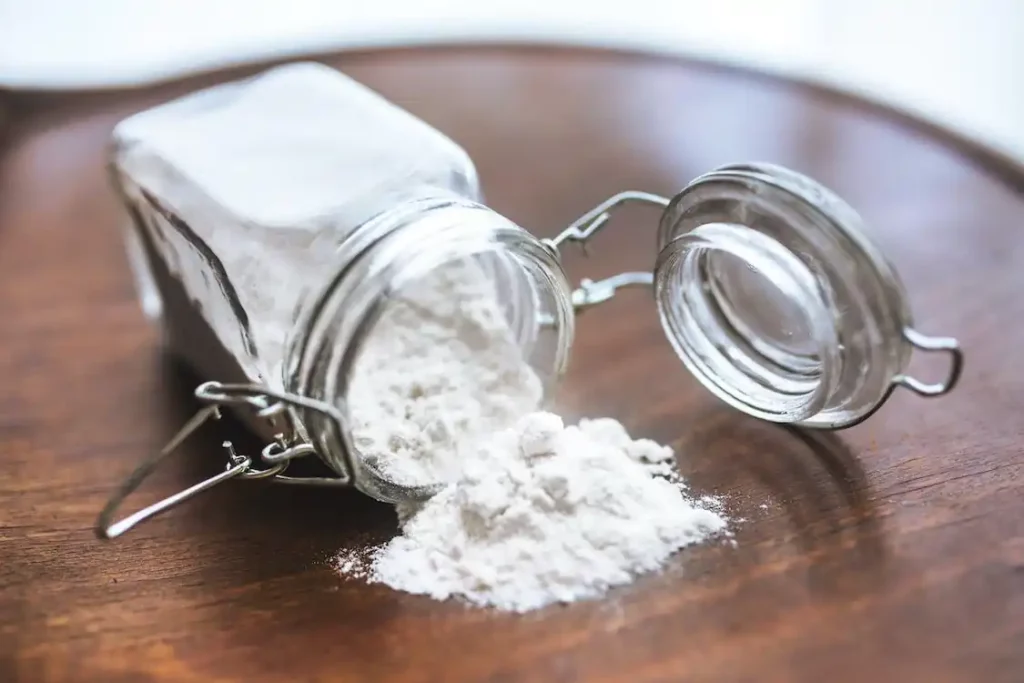There are a number of items that can be used in your garden to the benefit of plants.
For instance a year ago I wrote the article about using Apple Cider Vinegar on fruit trees to increase their performance and to reduce disease problems.
The formula is 250mil Apple Cider Vinegar (ACV) mixed with 5 litres water in a 5 litre sprayer.
Spray the mix in the evening when the sun has just gone off your trees or plants, so the sun isn’t heating/burning leaves through the liquid spray droplets on them, and there’s time for the spray to dry before nightfall.
Spray the whole tree, vine or plant, under and over leaves, the trunk, branches, twigs, fruit everything.
This will also feed the tree through the leaves (when they are there for deciduous trees) as a foliage food.
Baking Soda applied at a tablespoon per litre of water with Raingard added is good to prevent some fungus diseases such as black spot. (Dont use on calcium sensitive plants).
Baking Soda can be sprayed over the foliage of oxalis to dehydrate the leaves. Oxalis to sensitive to calcium.
It does not affect the bulbs below but regular spraying of baking soda will keep the garden free of the oxalis foliage without affecting other plants.
To deal to the bulbs in the soil, mix Wallys Super Compost Accelerator at 200 grams per litre of water and water liberally over the foliage down into the soil to compost the bulb and bulblets.
Then there is table salt which can be sprinkled on weeds to kill them which is ideal on pavers and where you dont have other plants growing.
Cooking oils and vinegar can also be sprayed onto weeds in full sun light to dehydrate the foliage and kill annual weeds.
Condys Crystals, (potassium permanganate) a quarter tea spoon per litre of water with or without Raingard to control leaf diseases such as black spot, rust and curly leaf.
Sunlight Bar Soap (big yellow bar) lathered up in water to spray over aphids and soft body insects to kill them. (The fatty acids breaks down their soft bodies)
Dish washing liquid lathered up in warm water to break surface tension to allow water to penetrate.
Aspirin: in plants, just like in mammals, salicylic acid helps them cope with stress and disease. By adding Aspirin to the water, gardeners are hoping to help their plants cope with problems and grow faster and stronger.
The acid is effective on plants because many plants produce it themselves in tiny amounts. Plants produce this acid when stressed or fighting disease. Feeding them a greater supply of the acid proves beneficial. Giving the plant too much aspirin can have a negative effect as it can burn its leaves.
Dissolve 250mg to 500mg of aspirin in 4.5 liters of non chlorinated water and spray plants two to three times per month.
Similarly soak the leaves of willow trees in water for a week or more and use that as a spray as you would the asprin. Willow water is ideal also for putting cuttings in to help them form roots quicker.
All great uses and here is the most interesting one of all:
Hydrogen peroxide 3%.
I read about this some years ago and it was again brought to my attention recently.
Hydrogen peroxide, well known as an ingredient in disinfectant products, is now also approved for controlling microbial pests on crops growing indoors and outdoors, and on certain crops after harvest.
This active ingredient prevents and controls bacteria and fungi that cause serious plant diseases.
Adding hydrogen peroxide to water promotes better growth in plants and boosts roots ability to absorb nutrients from the soil.
Diluted 3% peroxide adds needed aeration to the soil of plants and helps control fungus in the soil.
It acts as an insect pest deterrent and kills their eggs.
Ideal on brassica leaves for white butterfly eggs this time of the year.
I used 3% Hydrogen peroxide with Magic Botanic Liquid added on tomato and chili plants in my glasshouse and there was reduced actively within a couple of days.
A spray every 2-3 days is ideal for control or once a week or 2 weekly as a preventive.
I see on the Internet that the 3% should be further reduced with water such as 1:1 so if using 3% strength it would pay to do a test spray on a small area of foliage on each type of plant and see if there was any adverse reactions before using at 3% over whole crop or plant.
Ideal this time of the year to reduce pest number going into the winter.
I see the best use is in glasshouses where the product does not get washed away with rain.
Use out doors over and under foliage and you may need to reapply after rain.
Happy Gardening.
Image credit: Kaboompics.com
Products mentioned are from Wallys Range of products and can be found in some garden shops or by Mail Order on www.0800466464.co.nz
Problems ring me at: Phone 0800 466464
Garden Pages and News at www.gardenews.co.nz
Shar Pei pages at www.sharpei.co.nz
Mail Order products at www.0800466464.co.nz
